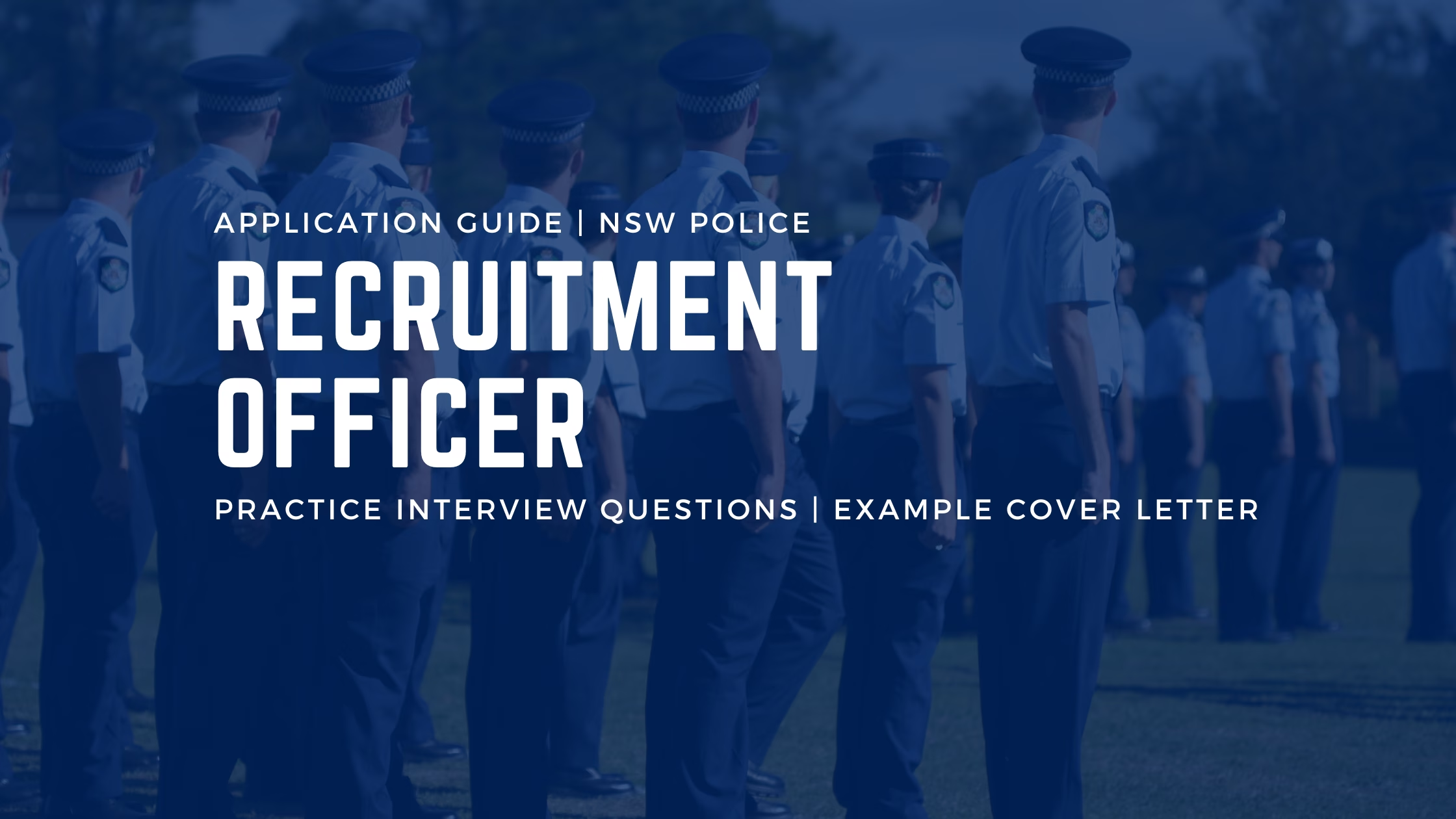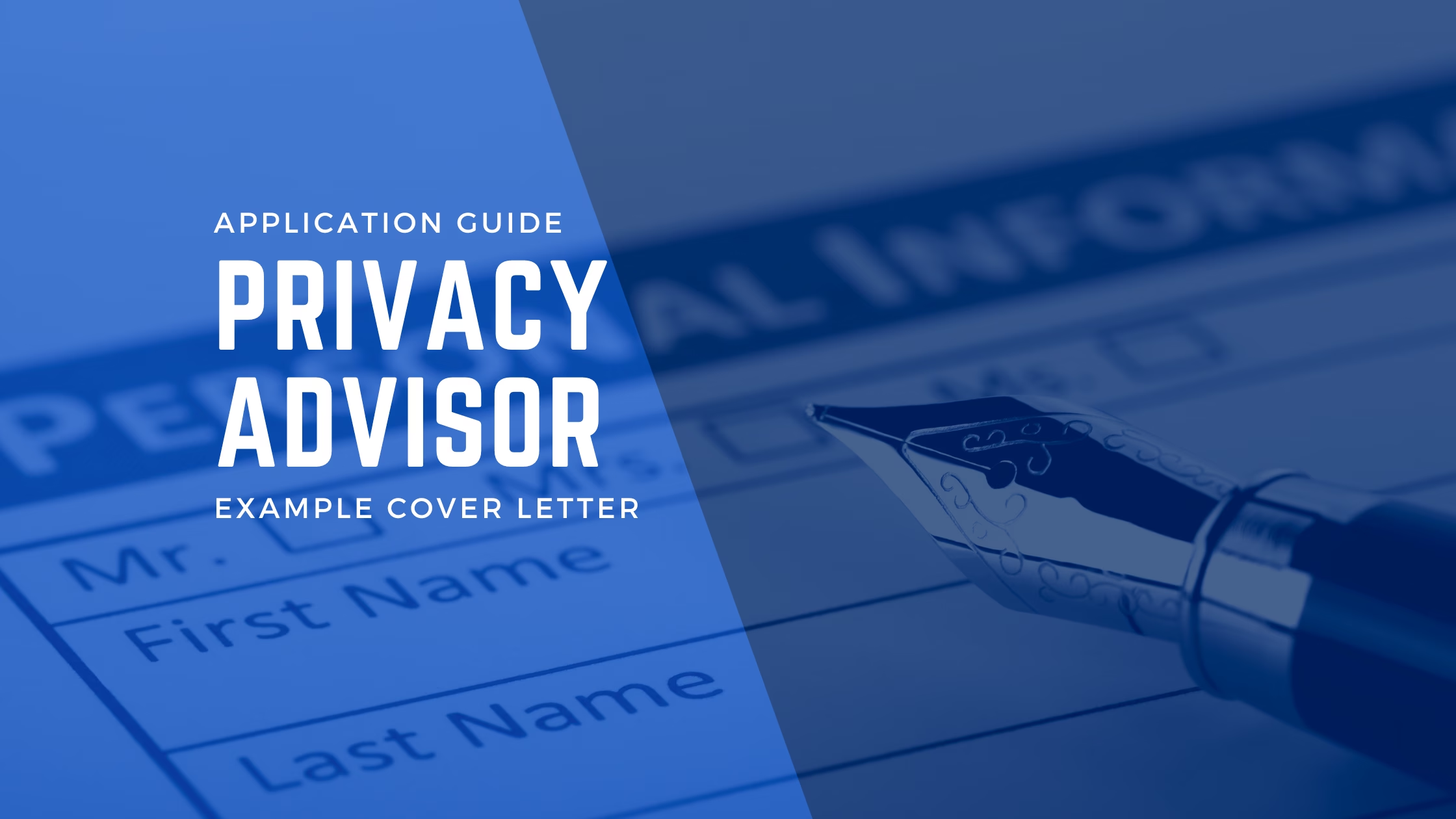NOTE: This post covers how to apply for a NSWPF Recruitment Officer job – an unsworn role in the cops that helps police candidates in their recruitment journey.
If you are looking for how to apply to become a police officer in NSW, CLICK HERE.
Are you ready to step into a vital role that helps shape the future of law enforcement in New South Wales? A Police Recruitment Officer is responsible for managing and streamlining the recruitment process for aspiring sworn police officers. From assessing applications to supporting candidates in their journey, this position is both challenging and highly rewarding, offering valuable insights into the workings of the NSW Police Force.
The Police Recruitment Officer role entails facilitating everything from initial eligibility checks to guiding successful applicants into the ranks of one of the largest police forces in the western world. In doing so, you’ll play a key part in helping the NSW Police Force maintain public safety and community trust, which is the cornerstone of any thriving society.
If you’ve ever wondered how you can combine administrative expertise, keen attention to detail, and a passion for public service, then this is the perfect opportunity for you.
Read on to discover the essential requirements, an example cover letter, and proven strategies (including the STAR technique) that will help you stand out.
Let’s dive into the unique benefits, challenges, and practical application tips for the Police Recruitment Officer position!
Table of Contents
Police Recruitment Officer: Your Pathway to a Dynamic Career in the NSW Police Force
The Police Recruitment Officer position is designed for individuals who thrive in a high-volume environment, have strong case management skills, and are eager to support law enforcement efforts. Below is a quick snapshot of what the role offers:
| Position Title | Police Recruitment Officer |
| Organisation/Entity | NSW Police Force |
| Job Location | Sydney Olympic Park (Sydney Region / Greater West) |
| Work Type | Temporary Full-Time (up to 12 months, potential for extension) |
| Base Pay | $82,193 to $90,001 + super + annual leave loading |
| Closing Date | 16/02/2025 – 11:59 PM |
About the Police Recruitment Officer Opportunity
As a Police Recruitment Officer within the Police Recruitment Branch, you will be directly involved in the recruitment process for sworn police officers. This branch falls under Recruitment, Transfers, and Appointments— the team responsible for ensuring the NSW Police Force maintains a steady pipeline of capable and community-focused individuals. You will oversee assessment and applications, making sure candidates meet eligibility requirements and adhere to the high standards expected in law enforcement support.
The NSW Police Force is one of the largest policing agencies in the western world. With over 20,000 employees, including more than 4,000 administrative professionals, the department provides a broad array of services to a diverse community across metropolitan and regional New South Wales. By joining the public sector in this capacity, you help maintain the strong operational backbone that allows sworn police officers to perform their duties effectively and uphold community safety.
One of the primary challenges you’ll face as a Police Recruitment Officer is operating in a high-volume environment. Each recruitment cycle, the Police Recruitment Branch receives a large number of applications from individuals eager to begin a career in policing. You will be responsible for reviewing, prioritising, and case managing a variety of candidate files, ensuring that each meets the stringent requirements set by the NSW Police Force.
Balancing the day-to-day demands of a busy, deadline-driven environment can test even the most organised individual. You’ll need to juggle administrative tasks, liaise with various stakeholders, and maintain accurate records of each applicant’s progress. Prioritising workload effectively is essential to ensure that only the most suitable candidates proceed swiftly through the recruitment process.
Reasons To Join as a Recruitment Officer
Becoming a Police Recruitment Officer offers a host of professional benefits and intrinsic rewards. Here are just a few reasons why this role is a compelling choice:
- Career in Policing: While you won’t be a sworn officer, your work directly contributes to strengthening frontline law enforcement support, helping maintain public trust and safety.
- Talent Pool Opportunities: High-performing candidates may be placed into a talent pool, meaning you can be considered for other vacancies at the same grade.
- Competitive Salary and Benefits: The remuneration package includes a competitive base salary, superannuation, flexible work options, annual leave loading, and access to corporate wellbeing programs.
- Professional Growth: You’ll get exposure to HR and recruitment practices in a high volume environment. This can set you up well for higher roles working in public sector recruitment.
Police Recruitment Officer Application Requirements
Whenever you apply for a NSW government role, you need to make sure you exactly meet what is asked for from applicants, otherwise you’ll likely get culled pretty fast. I’ve read through this job opportunity and have broken down exactly what you need to apply.
Application Process
Your application must be submitted electronically via the I Work for NSW website.
Include a professional cover letter (maximum two pages) and an up-to-date resume that highlights your most relevant experience.
You also need to answer two target questions, each requiring a 500-word response:
- Provide examples of times where you have had to re-prioritise your tasks to meet a team or corporate objective.
- Provide an example of a situation where you were required to gather a large amount of information, analyse it objectively, and make a decision or a recommendation based on the results.
Treat these questions as an opportunity to showcase your case management skills, decision-making abilities, and suitability for a high-volume environment. Structure your answers so that the selection panel can easily see how your experiences align with the demands of the Police Recruitment Branch.
Police Recruitment Officer Essential Role Requirements
In order to be eligible for this position, you must satisfy at least one of the following criteria:
- Australian Citizen
- Permanent Resident of Australia
- New Zealand Citizen
The role description also outlines that you must demonstrate ‘appropriate administrative and clerical background including a high degree of organisational ability‘ and will need to complete a security clearance as part of the application process.
These essential elements should be the focus of your cover letter.
While not mandatory, the following experience can give you a competitive edge:
- Proven track record in a clerical or administrative capacity within the public sector
- Exposure to high-volume recruitment cycles and proficiency in juggling multiple priorities
Understanding and Addressing Focus Capabilities
Each public sector role, including the Police Recruitment Officer, is underpinned by specific capabilities outlined in the NSW Capability Framework. These capabilities define the core skills, knowledge, and attitudes that you need to excel in the position.
Before finalising your application, review the role description and identify which focus capabilities are most relevant. Demonstrate these in your cover letter, resume, and especially in your target question responses by showcasing how your experience aligns with each capability. By explicitly mapping your qualifications to these frameworks, you make it easier for the selection panel to see that you are well-prepared for the challenges a high-volume recruitment environment presents.
Application Checklist for Police Recruitment Officer
Before hitting “submit,” use this checklist to ensure you’ve covered all the essentials:
| Checklist Item | Status |
| Review the role description and focus capabilities | [ ] |
| Prepare cover letter (max 2 pages) addressing the role requirements | [ ] |
| Address each Target Question (500 words each) | [ ] |
| Update and tailor your resume | [ ] |
| Get your cover letter reviewed | [ ] |
| Submit via the I Work for NSW portal | [ ] |
Candidate Profile
Meet Kevin, a dedicated administrator with a keen interest in supporting the public sector. Having previously worked in clerical and administrative capacities for a local council, Kevin has developed robust organisational skills and thrives under tight deadlines. He wants to transition into a more dynamic role that allows him to contribute to law enforcement support without necessarily becoming a sworn police officer himself.
Kevin sees the Police Recruitment Officer role as a perfect match for his passion for public service. By leveraging his experience in high-volume environments—where prioritising workload is critical—he’s confident in his ability to streamline assessment and applications, thus ensuring the NSW Police Force recruits the best candidates to protect and serve.
Police Recruitment Officer Example Cover Letter
Dear Selection Panel,
I am writing to express my strong interest in the Police Recruitment Officer position with the NSW Police Force. With a solid background in clerical and administrative work, particularly within high-volume environments, I believe I am well-suited to manage the demands of assessing a large pool of applicants for sworn police officer roles.
My experience in case management and prioritising workload will allow me to contribute effectively to the Police Recruitment Branch as it fulfils its critical mandate: selecting capable officers to serve and protect the community of New South Wales.
For the past three years, I have worked in a busy council department, where I was responsible for screening and shortlisting candidates for multiple roles, coordinating interviews, and managing reference checks. This experience sharpened my ability to handle large-scale recruitment processes, ensuring accuracy, efficiency, and compliance with regulatory requirements.
Provide examples of times where you have had to re-prioritise your tasks to meet a team or corporate objective.
In my previous role within a busy council department, I frequently had to re-prioritise tasks to ensure the team met critical recruitment deadlines. One significant example occurred when our department was managing two concurrent recruitment drives, each with strict deadlines. Midway through the process, a key stakeholder requested that additional positions be added to one of the recruitment drives, doubling the volume of applications we needed to process.
To manage this increased workload while ensuring that no applications were mishandled, I developed a prioritisation framework, outlining urgent versus non-urgent tasks and redistributing workload across the team. I introduced daily stand-up meetings to assess progress, adjust priorities as needed, and ensure every team member had clarity on their immediate responsibilities.
By proactively communicating with stakeholders and streamlining workflows, we successfully completed both recruitment processes on time without any compromise in accuracy or compliance. My ability to adapt under pressure and re-prioritise tasks effectively ensured the department met its hiring objectives while maintaining operational efficiency.
Provide an example of a situation where you were required to gather a large amount of information, analyse it objectively, and make a decision or a recommendation based on the results.
In a previous recruitment project, I was responsible for reviewing and assessing a large volume of candidate applications for a high-demand public sector role. The challenge was to ensure that hiring decisions were based on both qualitative and quantitative data while maintaining fairness and compliance with recruitment policies.
To achieve this, I systematically gathered information from multiple sources, including online application data, candidate test results, interview panel feedback, and reference checks. Recognising the need for a structured approach, I developed a scoring rubric that combined these elements into an objective assessment framework. This allowed for a clear, data-driven comparison of applicants and facilitated discussions with senior managers about candidate suitability.
Based on my analysis, I provided a shortlist of the top candidates with detailed justifications for each recommendation. Senior management accepted my recommendations, and the process resulted in successful hires who met all role requirements. The scoring rubric I developed was later adopted as a standardised evaluation tool for future recruitment rounds. This experience reinforced my ability to objectively analyse complex information, make informed decisions, and contribute to improving recruitment processes.
As these examples illustrate, my ability to adapt to shifting priorities, manage high-volume recruitment processes, and analyse data objectively would be invaluable for a Police Recruitment Officer. My background in administrative and clerical work has provided me with a high degree of organisational ability, ensuring I can effectively contribute to the Police Recruitment Branch.
Beyond technical competencies, I am drawn to the broader mission of the NSW Police Force—protecting and serving the diverse community of NSW. I believe my passion for public service, coupled with my proven track record in recruitment, makes me a strong candidate for this role.
I am an Australian Citizen and meet the eligibility criteria for this role. Additionally, I am prepared to undergo the required security clearance process as part of the application.
Thank you for considering my application. I am excited about the opportunity to contribute to the timely and effective selection of future sworn police officers and would welcome the chance to discuss my candidacy further.
Sincerely,
Kevin Smith
Explain the STAR Technique
The STAR technique—Situation, Task, Action, Result—is a structured approach to communicating examples of your achievements in a clear, concise manner. In the public sector, and especially for a role like Police Recruitment Officer, showcasing your ability to handle challenges in a high-volume environment or manage critical aspects of assessment and applications will resonate strongly with the hiring panel.
When you use STAR, you provide context for the scenario (Situation), define your goal or responsibility (Task), describe the steps you took (Action), and conclude with the outcome (Result). By following this format, you effectively demonstrate the thought process behind your decisions. Recruiters in the NSW Police Force appreciate this method because it highlights not only what you did, but why you did it and how it contributed to operational success.
In the example cover letter, you can see how STAR was used to structure responses to the target questions. This approach helps address specific selection criteria and focus capabilities under the NSW Capability Framework. As a Police Recruitment Officer, being able to illustrate how you re-prioritised workload or made data-driven decisions will indicate your readiness for the demands of the recruitment process.
Police Recruitment Officer Interview Preparation
Below are three example questions you might encounter in an interview for a Police Recruitment Officer role within the NSW Police Force, along with tips for applying the STAR method:
- “Describe a time you had to handle a high-volume workload with conflicting deadlines.”
Emphasise how you maintained efficiency and quality. Mention any tools or communication strategies you used to delegate tasks and stay organised. - “How have you ensured fairness and integrity in a recruitment or administrative process?”
Focus on your approach to unbiased decision-making, thorough documentation, and consistent evaluation criteria for candidates. - “Tell us about a situation where you had to collaborate with multiple teams or stakeholders.”
Stress the importance of teamwork, conflict resolution, and clarity in roles and responsibilities to drive a project to completion.
Sample STAR Answer
Situation: In a previous role, I was responsible for processing a surge of applications in a very short timeframe.
Task: My goal was to ensure that each application was evaluated fairly and promptly, despite the tight deadline.
Action: I created a priority-based checklist and held brief daily meetings to track our team’s progress. I also automated certain repetitive tasks using spreadsheets to speed up data entry.
Result: We successfully processed all applications ahead of schedule, and our accuracy rate was commended by senior management.
Final Thoughts
The Police Recruitment Officer position stands at the intersection of law enforcement and public sector administration. By focusing on the core capabilities—like managing a high-volume environment, strong case management, and attention to detail—your application will showcase how you can directly contribute to building a capable force of sworn police officers. As you move through each phase of the process, from cover letter to interview, remember to tell your story using the STAR format and convince the hiring panel that you have directly relevant experience for the role.
If you’re ready to embark on a meaningful career, click here to apply for the Police Recruitment Officer role.





